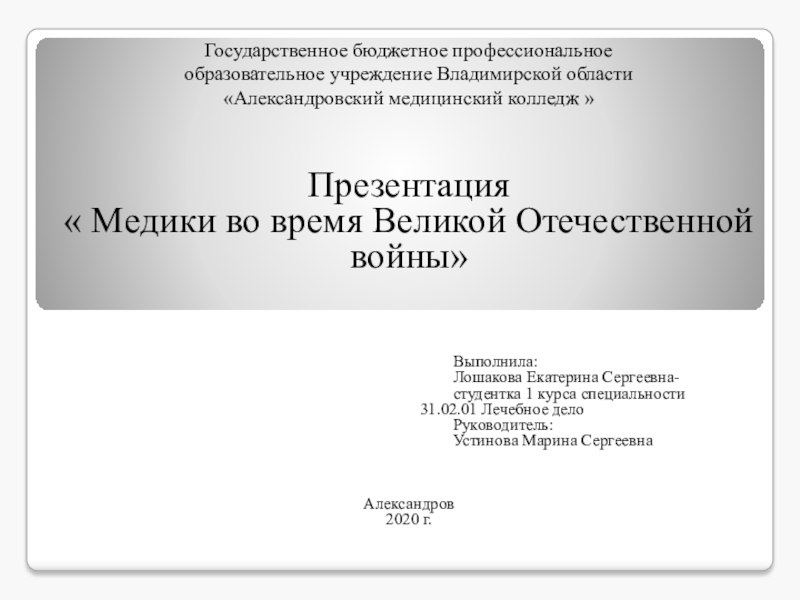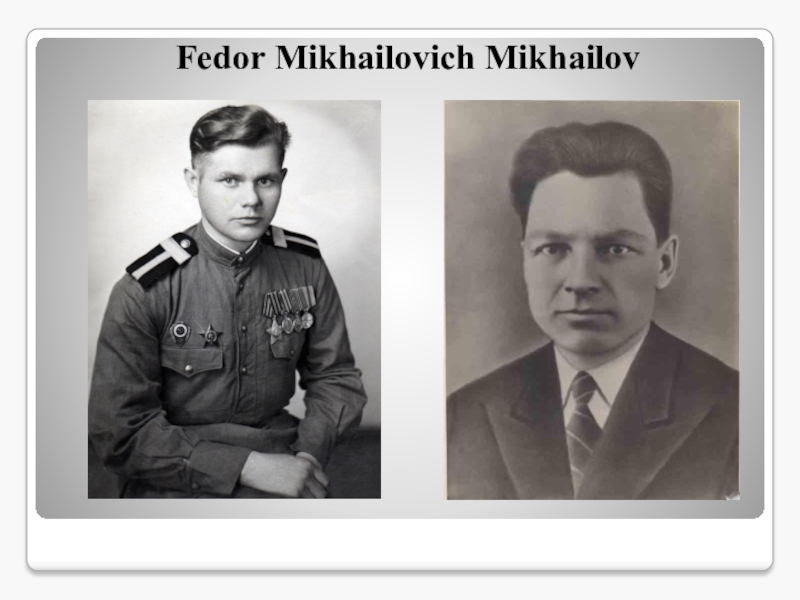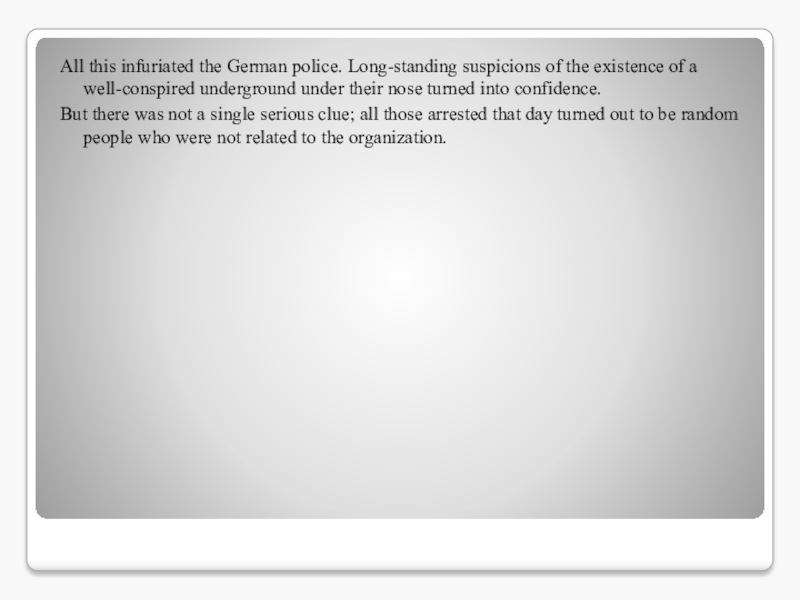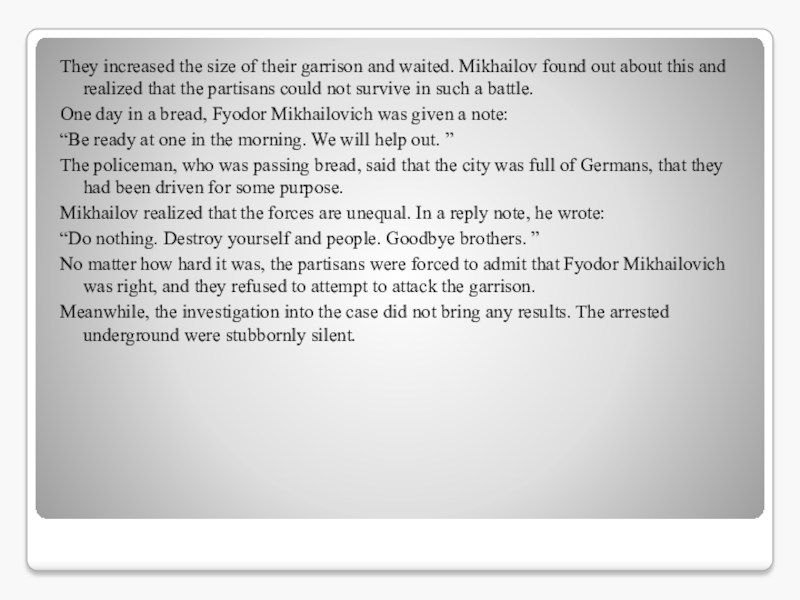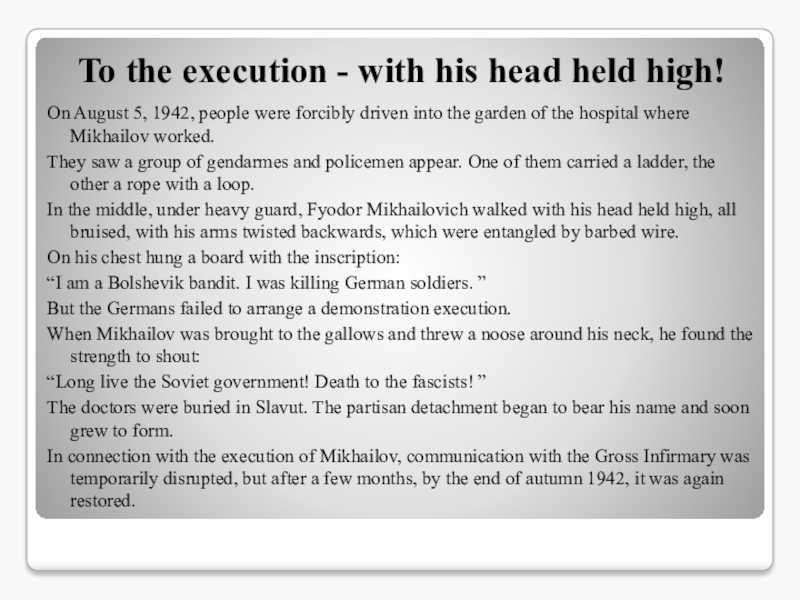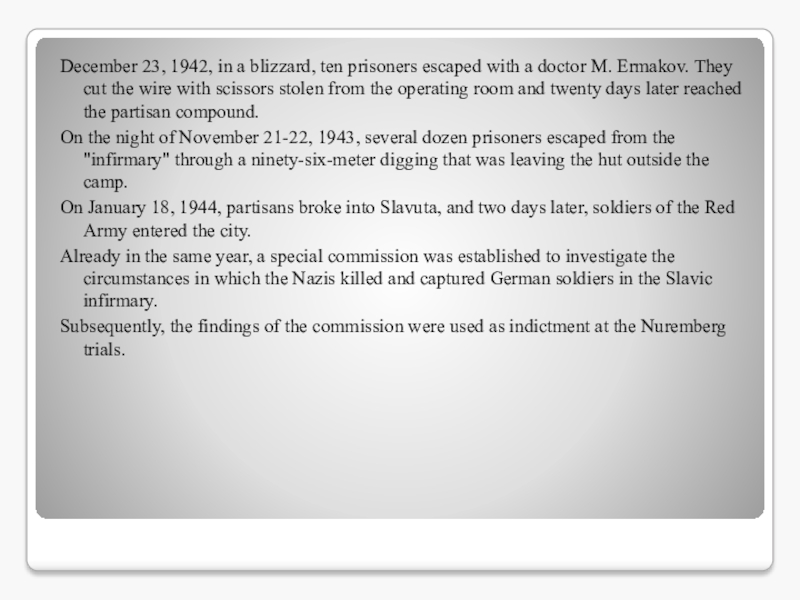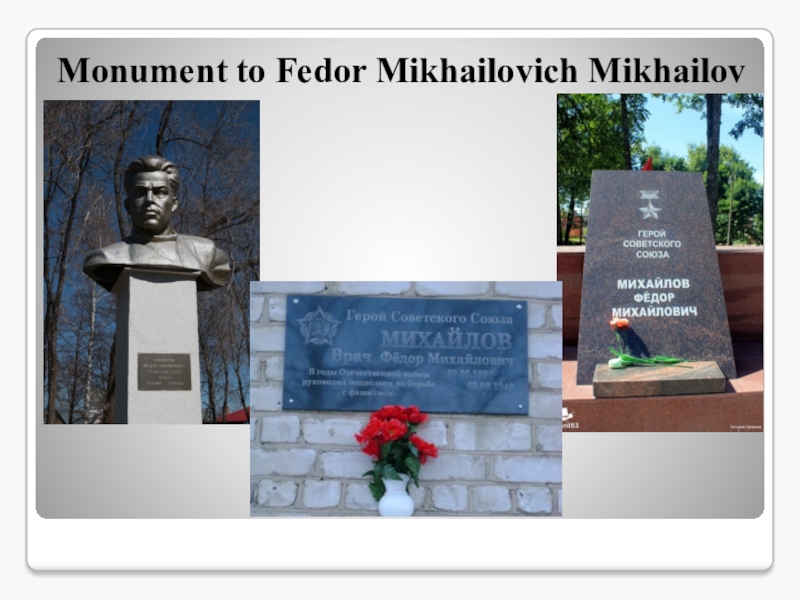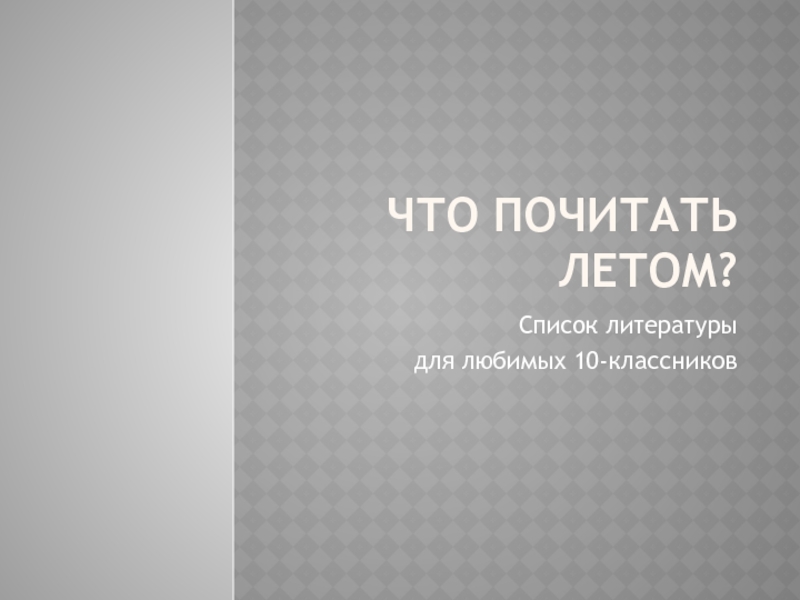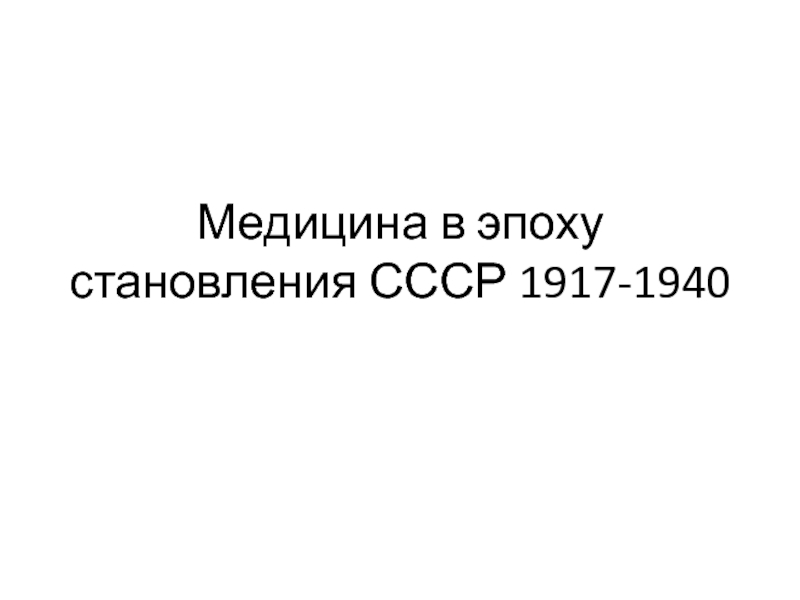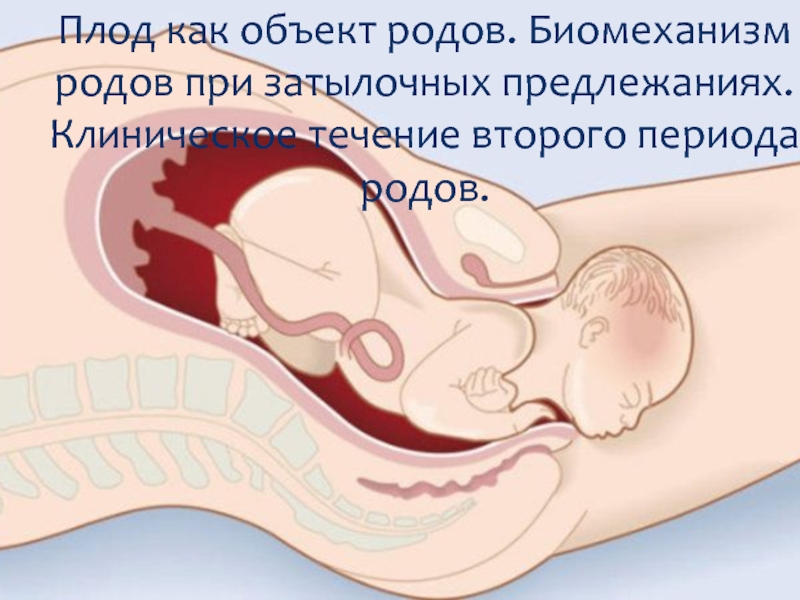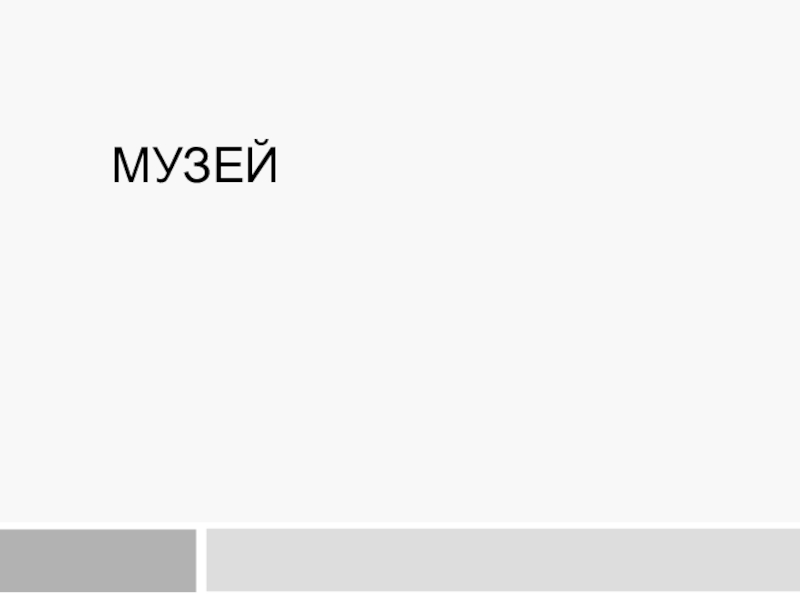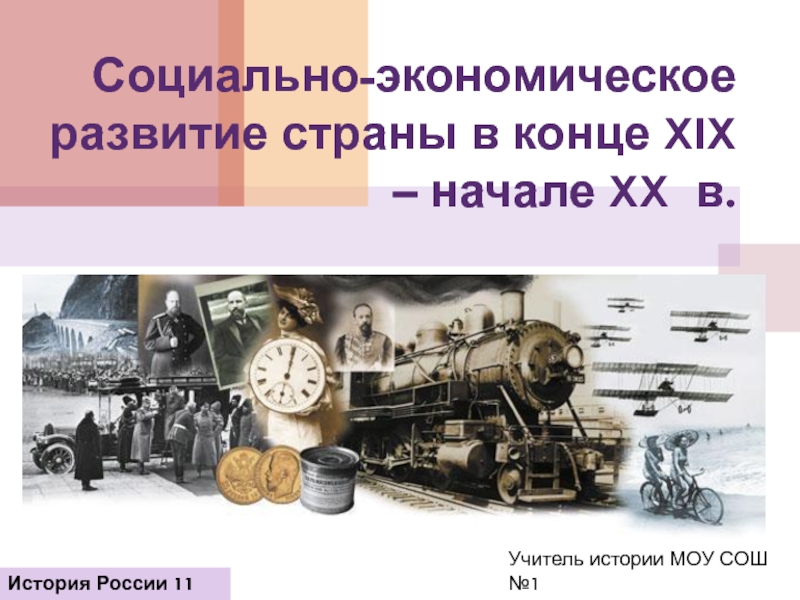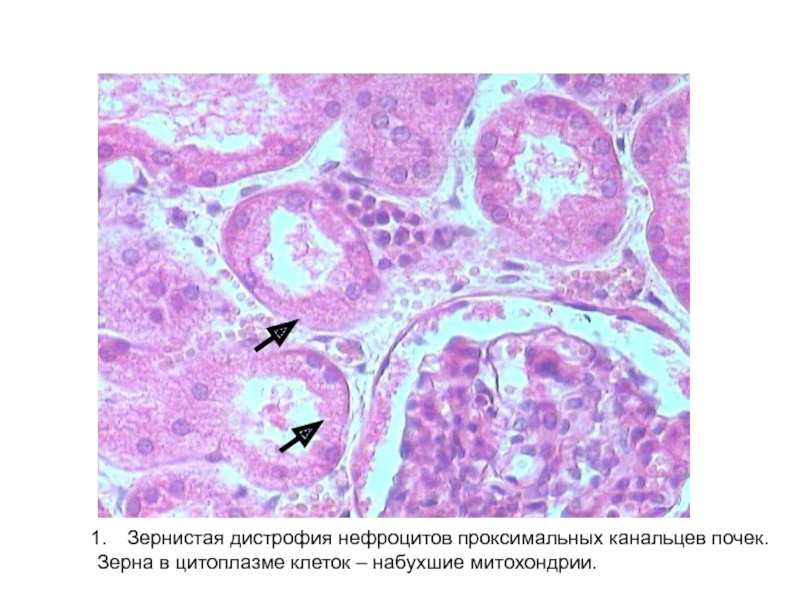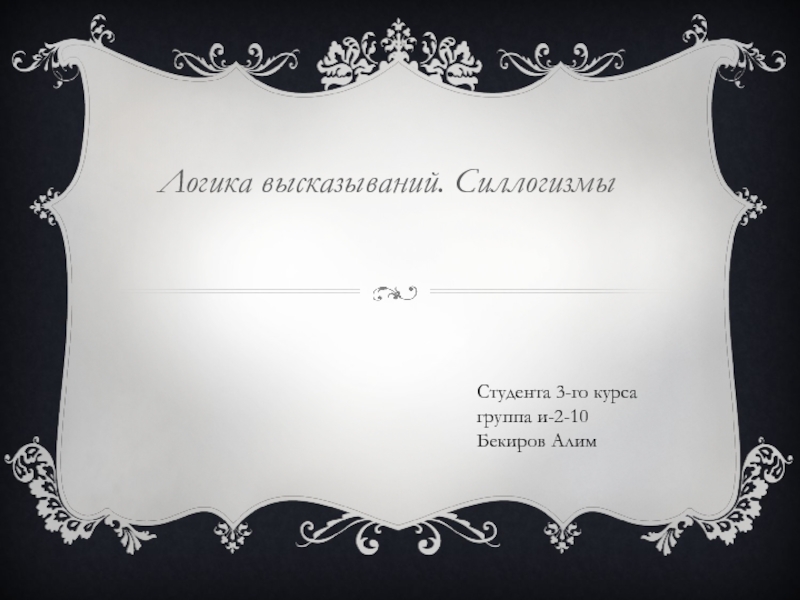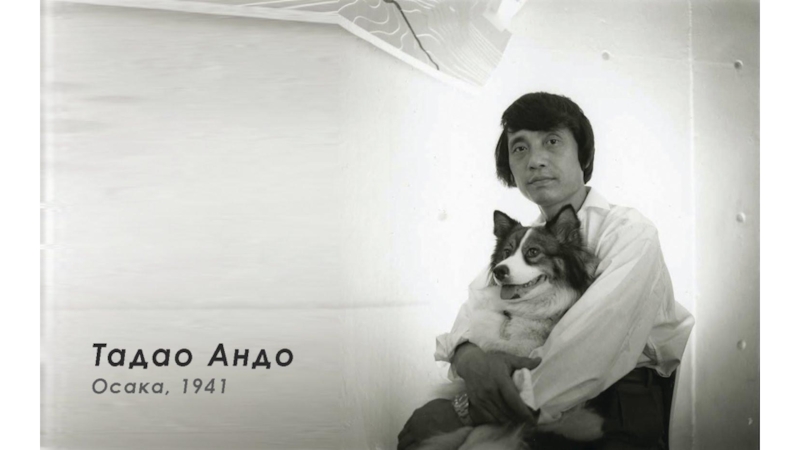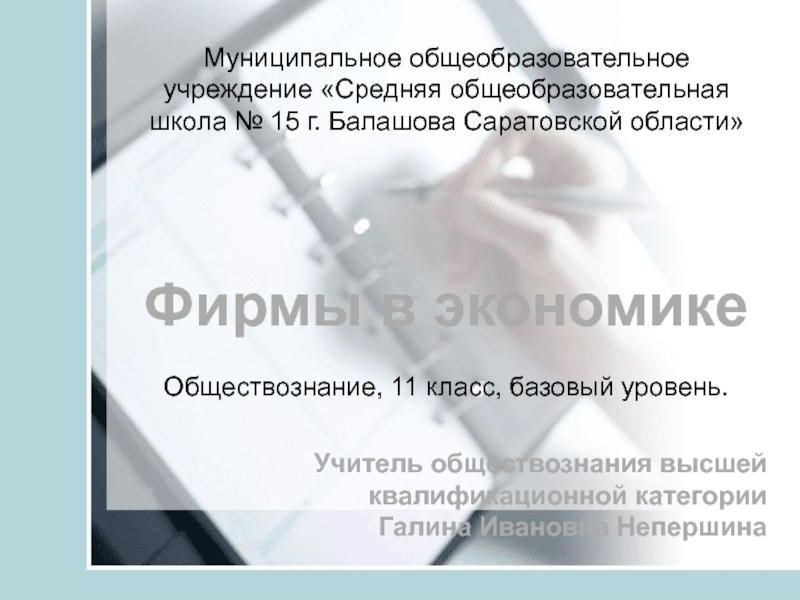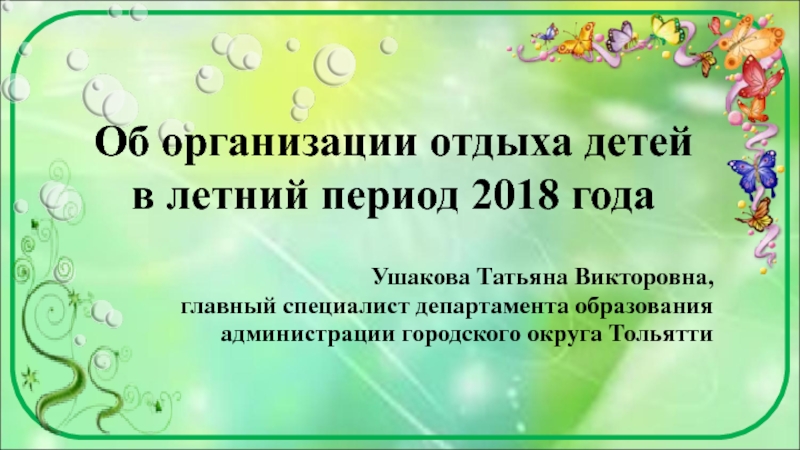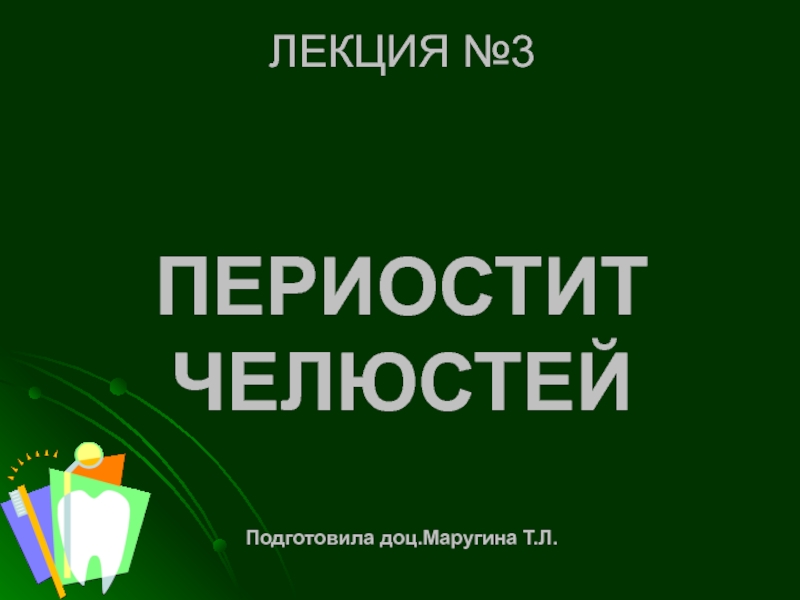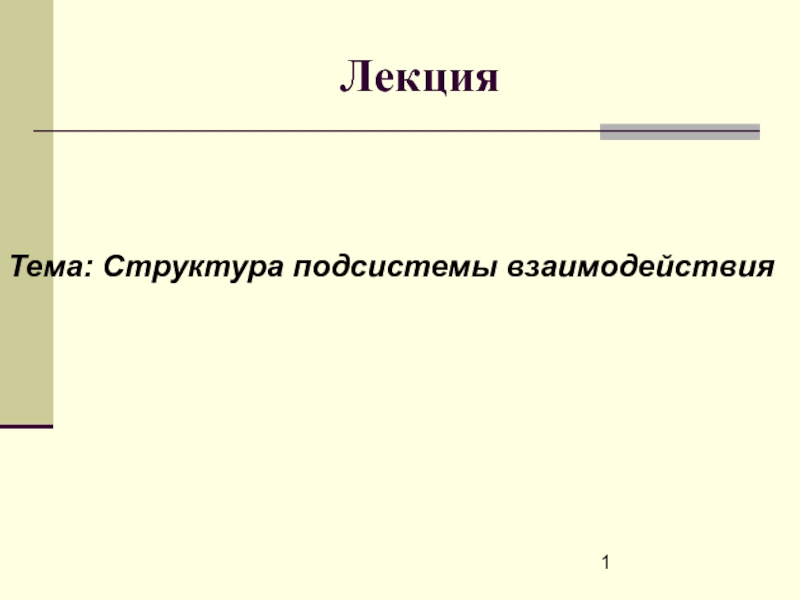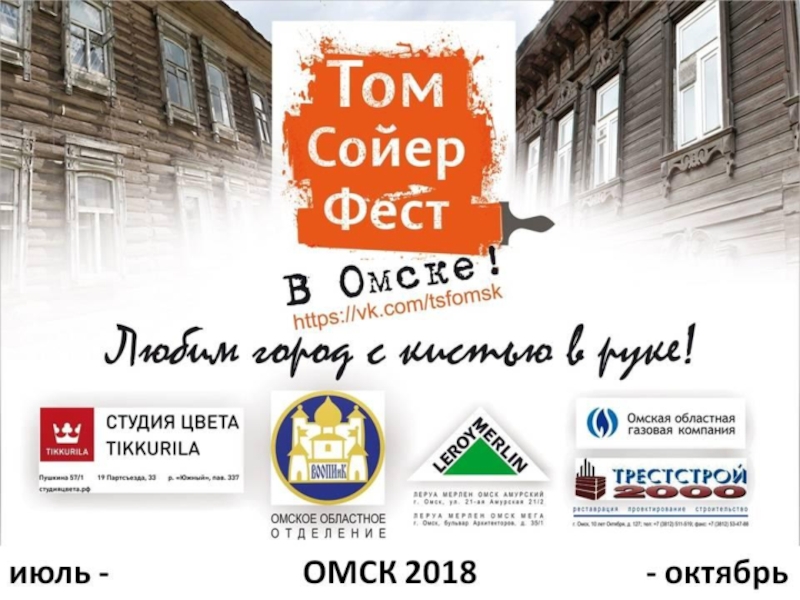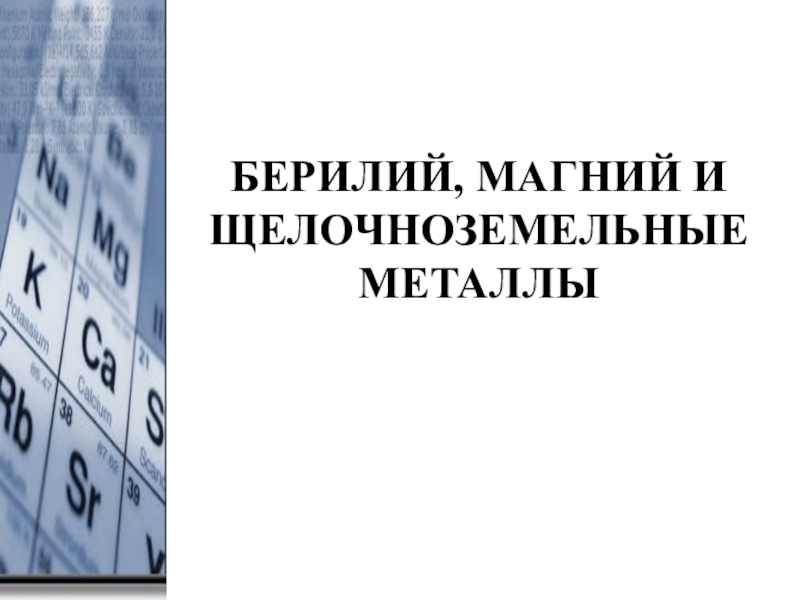Слайд 1Государственное бюджетное профессиональное
образовательное учреждение Владимирской области
«Александровский медицинский колледж »
Презентация
«
Медики во время Великой Отечественной войны»
Выполнила:
Лошакова Екатерина Сергеевна-
студентка 1 курса специальности
31.02.01 Лечебное дело
Руководитель:
Устинова Марина Сергеевна
Александров
2020 г.
Слайд 2Fedor Mikhailovich Mikhailov
Mikhailov was born on May 30, 1898 in
the village of Pereluch in the Pskov province in a
poor peasant family.
From childhood, he labored at the local landowner. In order to survive somehow, in 1915 he entered the Kronstadt Jung school, and after that he served as a sailor on the warship "Nikolaev".
Being among the revolutionary-minded sailors, the young man could not be aloof from the revolutionary events. He opposed the tsarist regime, was arrested and put in a casemate. He participated in an armed uprising in Petrograd in October 1917.
He fought against the troops of Yudenich. Stormed the fort "Krasnaya Gorka" and was wounded.
In 1926, Mikhailov graduated from the medical institute. He worked as a doctor in the Smolensk, Kuibyshev, Vladimir regions.
From 1935 to 1940 he headed the district hospital in the village of Yazykovo in our region.
The wounds received on the fronts of the Civil War constantly reminded themselves.
Together with his wife Maria Tikhonovna, whom he met in Yazykovo, they decided to move to a region with a milder climate.
So the Mikhailov family found themselves in the city of Slavut, Khmelnytsky region, where Fyodor Mikhailovich continued his medical career, becoming the head doctor of the maternity hospital.
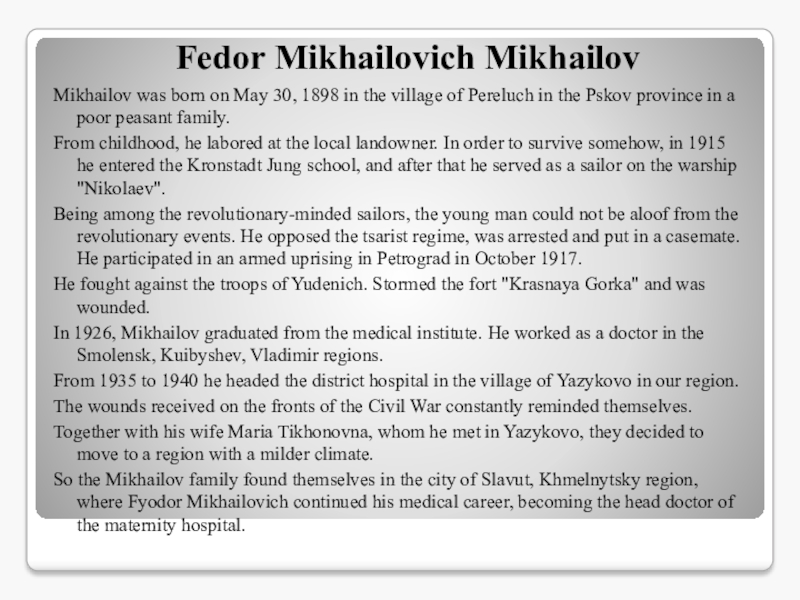
Слайд 3Fedor Mikhailovich Mikhailov
Слайд 4Underground
When the Great Patriotic War began, Mikhailov was sent to
retraining courses for military doctors.
In October 1941, in the Poltava
region, part of it fell into the environment, and when all attempts to connect with them were unsuccessful, he moved into civilian clothes and returned to Slavuta.
The city was occupied by German troops. Watching him was unbearable.
Mikhailov began to look closely at the environment. People had to fight for the Nazis.
To carry out his plan, Fyodor Mikhailovich went to the German commandant’s office and offered his services to the invaders. The Nazis believed him.
After he underwent a complicated operation, one high-ranking Nazi was always offered the high post of chief doctor of the Slavutsk city hospital.
It was a great luck. The doctor gradually began to deploy subversive work against the invaders. He created and led an underground organization.
With the help of local patriots, he united underground groups from several villages of the Slavutsky and Shepetovsky regions into one anti-fascist organization.
In December 1941, the doctor headed the inter-district underground committee.
The underground members listened to radio programs from Moscow and disseminated the latest news among the population, issued patriotic leaflets. They had their own underground printing house, three typewriters, and three radios.
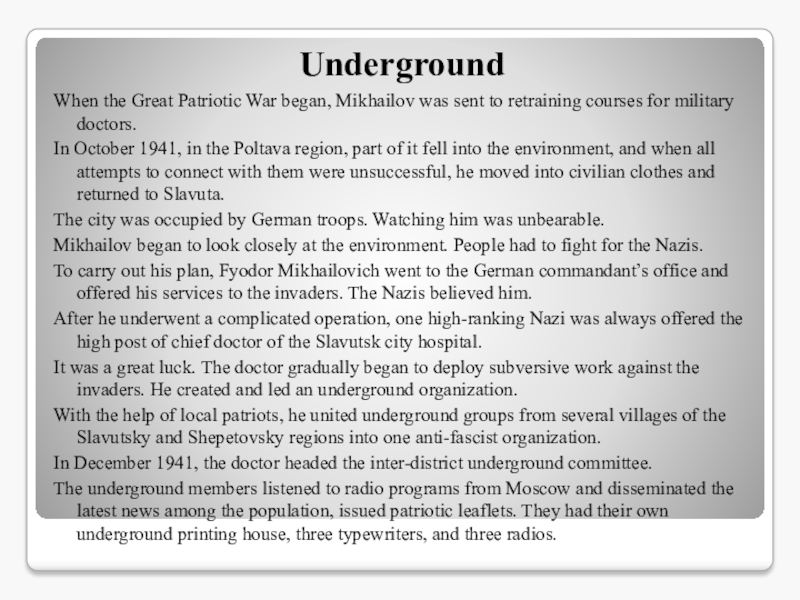
Слайд 5The double life of the Gross Infirmary
The death camp -
"Gross-Infirmary No. 301" has become a special page in the
activities of the underground.
It was located in a former military town two kilometers south-east of the city.
These were all of the above wire puzzles. Guards with dogs patrolled the camp.
Start an underground group led by military physician A. Chamokov.
Mikhailov managed to get agreement that some doctors and nurses are involved in combating the spread of infections.
The infectious department of the Slavutsk hospital was in his city, and his Germans did not favor him with their attention. It was an opportunity to make here a kind of transit point for the death to be stolen to Germany and prisoners of war.
“Typhoid” and “tuberculosis” patients who came here after a thorough “check” conducted by the medical staff of Mikhailov Hospital began to enter the department.
At some stage, "death" of such patients. At night, the "dead" went into specially prepared apartments, then into the woods to the partisans.
Soon, a partisan detachment created from the "sick" of Dr. Mikhailov and escaping with his use in a prisoner of war camp turned into a formidable force.
The partisan formation numbers over four thousand fighters.
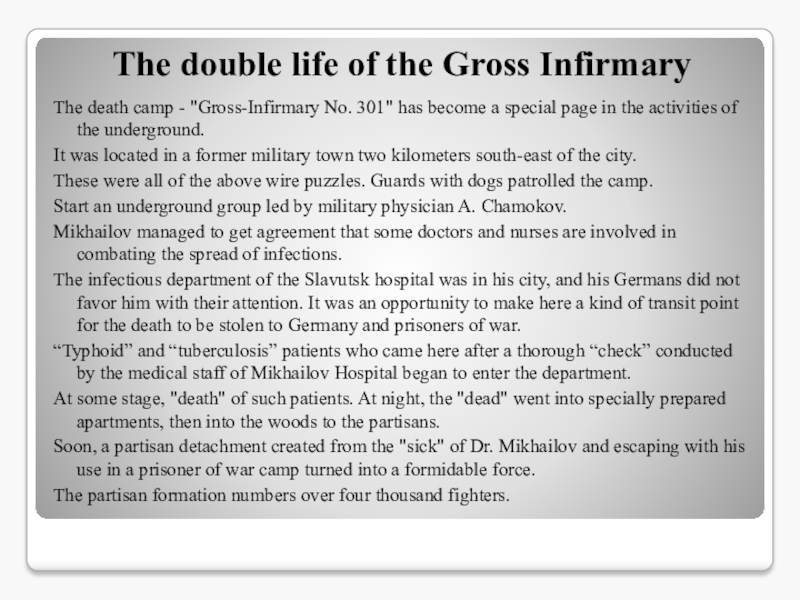
Слайд 6Surprises for the occupiers
The organization was growing stronger, gaining strength
and delivering more tangible blows.
In March, seventeen bombers arrived at
the Slavic airfield. In just one day, they were able to drop sixty tons of bombs.
Many pioneers were active participants in the underground organization. When preparing the operation to destroy German pilots, the students were sent to clear the airfields and help in the kitchen. The guys waited a long time for a convenient moment.
Finally, the cook put the pan with the compote on a draft. The powder was added there. By evening, fifteen pilots had passed away.
On the city square in Slavut there was a monument to Lenin. The Germans decided to send him for re-melting, but the day before he had disappeared. The whole police were raised to their feet, but the search was in vain: the bust of Vladimir Ilyich was securely hidden.
Cases of machine failure became more frequent at enterprises, traitors of the Motherland mysteriously disappeared.
The Nazis organized raids and searches, repaired the massacre at the slightest suspicion, but could not attack the trail of the underground.
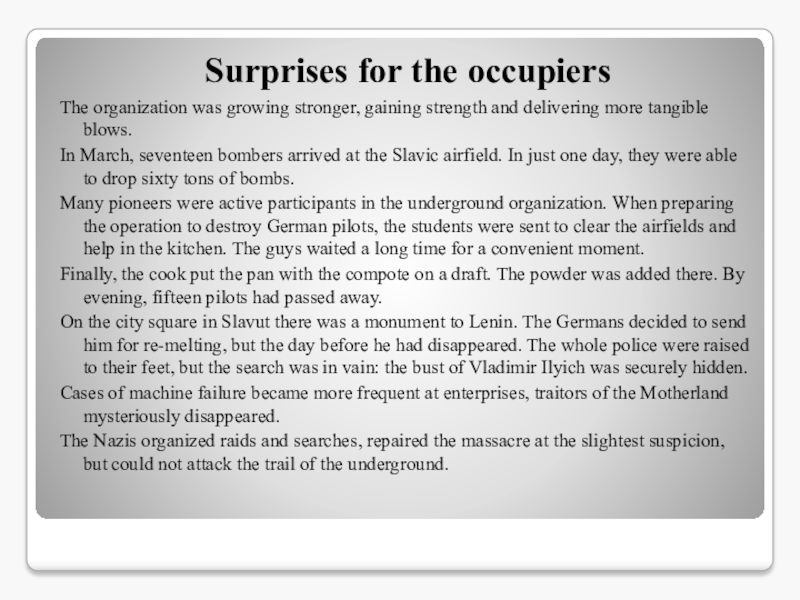
Слайд 7The partisans conducted nine hundred and forty-eight military operations and
sabotage, destroyed over twelve thousand soldiers and officers of the
Wehrmacht, derailed about three hundred railway trains.
Mikhailov brought to the committee meeting the question of preparing for the arrival of the Red Army an armed uprising.
To do this, it was necessary to create new battle groups, merge them into one or more partisan detachments.
It was supposed to destroy the railway, and when the bridges fly up into the air, the connection is interrupted, policemen and elders will be killed, partisan detachments will strike at the rear of the Nazis.
The offer was accepted. Preparations for the uprising unfolded in full swing. It was necessary to pick up people, break them into groups, appoint commanders, transport weapons to certain places. But to implement this carefully thought-out plan failed.
Approaching May 1, 1942.
In the morning, nine red flags developed over the city. A policeman who tried to remove one of them died on the spot: the flags were mined. On many houses, including on office premises and even on the doors of the apartment of the commandant of Slavuta himself, holiday leaflets, already printed in their own printing house, were white. An entire German convoy was disabled. One policeman disappeared without a trace, two were seriously injured.
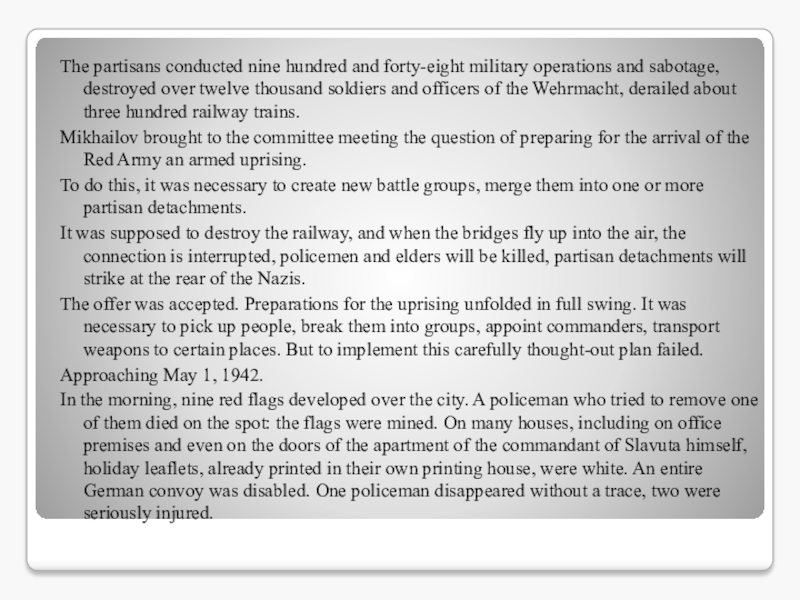
Слайд 8All this infuriated the German police. Long-standing suspicions of the
existence of a well-conspired underground under their nose turned into
confidence.
But there was not a single serious clue; all those arrested that day turned out to be random people who were not related to the organization.
Слайд 9"The Communists do not sell their conscience!"
The Germans began to
search for the core of the organization in the Gross-Infirmary.
They exchanged prisoners of war with other camps. Replaced the internal guard, which was to take part in the uprising. Their calculation was correct. The uprising plan was in jeopardy.
Mikhailov saw the clouds gather over him. He could not know that the enemy could send experienced agents and provocateurs to his organization. And so it happened.
In the ranks of the underground, a traitor was wound up who betrayed Fyodor Mikhailovich.
July 22, 1942 the doctor was arrested and sent to Shepetovsky prison.
During interrogation, the head of the Gestapo, Count Dietrich, offered Mikhailov a sincere confession, for which he guaranteed him freedom and a private clinic in Lviv.
Mikhailov replied:
“The communists do not trade in conscience and beliefs. I fought for a just cause, and if necessary, I am ready to die for it. ”
Not excluding the possibility that his comrades-in-arms would try to free the doctor Mikhailov, the Germans decided to organize a mousetrap for the partisans.
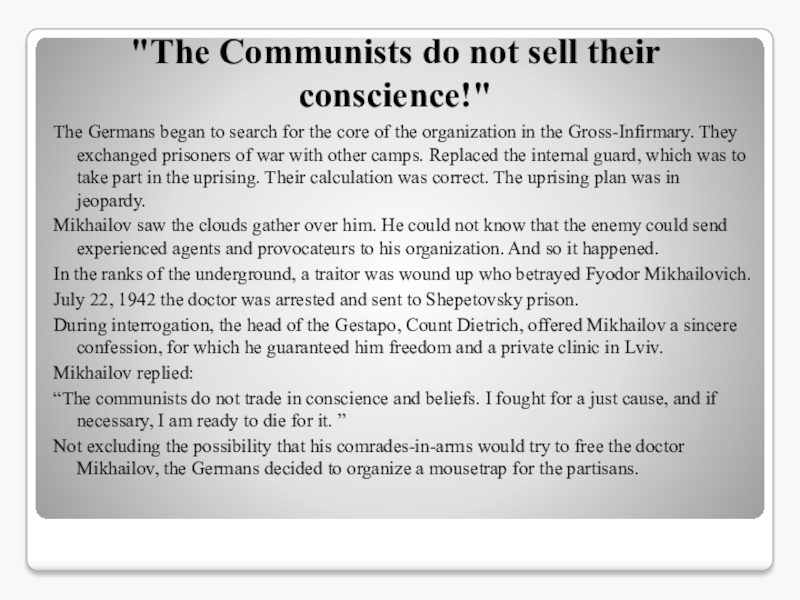
Слайд 10They increased the size of their garrison and waited. Mikhailov
found out about this and realized that the partisans could
not survive in such a battle.
One day in a bread, Fyodor Mikhailovich was given a note:
“Be ready at one in the morning. We will help out. ”
The policeman, who was passing bread, said that the city was full of Germans, that they had been driven for some purpose.
Mikhailov realized that the forces are unequal. In a reply note, he wrote:
“Do nothing. Destroy yourself and people. Goodbye brothers. ”
No matter how hard it was, the partisans were forced to admit that Fyodor Mikhailovich was right, and they refused to attempt to attack the garrison.
Meanwhile, the investigation into the case did not bring any results. The arrested underground were stubbornly silent.
Слайд 11To the execution - with his head held high!
On August
5, 1942, people were forcibly driven into the garden of
the hospital where Mikhailov worked.
They saw a group of gendarmes and policemen appear. One of them carried a ladder, the other a rope with a loop.
In the middle, under heavy guard, Fyodor Mikhailovich walked with his head held high, all bruised, with his arms twisted backwards, which were entangled by barbed wire.
On his chest hung a board with the inscription:
“I am a Bolshevik bandit. I was killing German soldiers. ”
But the Germans failed to arrange a demonstration execution.
When Mikhailov was brought to the gallows and threw a noose around his neck, he found the strength to shout:
“Long live the Soviet government! Death to the fascists! ”
The doctors were buried in Slavut. The partisan detachment began to bear his name and soon grew to form.
In connection with the execution of Mikhailov, communication with the Gross Infirmary was temporarily disrupted, but after a few months, by the end of autumn 1942, it was again restored.
Слайд 12December 23, 1942, in a blizzard, ten prisoners escaped with
a doctor M. Ermakov. They cut the wire with scissors
stolen from the operating room and twenty days later reached the partisan compound.
On the night of November 21-22, 1943, several dozen prisoners escaped from the "infirmary" through a ninety-six-meter digging that was leaving the hut outside the camp.
On January 18, 1944, partisans broke into Slavuta, and two days later, soldiers of the Red Army entered the city.
Already in the same year, a special commission was established to investigate the circumstances in which the Nazis killed and captured German soldiers in the Slavic infirmary.
Subsequently, the findings of the commission were used as indictment at the Nuremberg trials.
Слайд 13Monument to Fedor Mikhailovich Mikhailov
